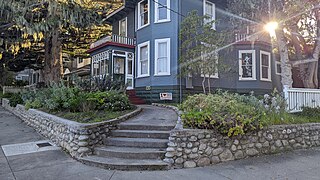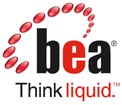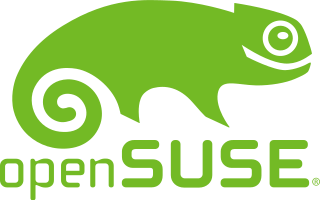
WordPerfect (WP) is a word processing application, now owned by Alludo, with a long history on multiple personal computer platforms. At the height of its popularity in the 1980s and early 1990s, it was the market leader of word processors, displacing the prior market leader WordStar.

Digital Research, Inc. was a privately held American software company created by Gary Kildall to market and develop his CP/M operating system and related 8-bit, 16-bit and 32-bit systems like MP/M, Concurrent DOS, FlexOS, Multiuser DOS, DOS Plus, DR DOS and GEM. It was the first large software company in the microcomputer world. Digital Research was originally based in Pacific Grove, California, later in Monterey, California.

Cascade Parent Limited, doing business as Alludo, is a Canadian software company headquartered in Ottawa, Ontario, specializing in graphics processing. Formerly called the Corel Corporation, the company is known for producing software titles such as CorelDRAW, and for acquiring AfterShot Pro, PaintShop Pro, Painter, Video Studio and WordPerfect.

Novell, Inc. was an American software and services company headquartered in Provo, Utah, that existed from 1980 until 2014. Its most significant product was the multi-platform network operating system known as Novell NetWare. Novell technology contributed to the emergence of local area networks, which displaced the dominant mainframe computing model and changed computing worldwide.

OpenDoc is a defunct multi-platform software componentry framework standard created by Apple in the 1990s for compound documents, intended as an alternative to Microsoft's proprietary Object Linking and Embedding (OLE). It is one of Apple's earliest experiments with open standards and collaborative development methods with other companies. OpenDoc development was transferred to the non-profit Component Integration Laboratories, Inc., owned by a growing team of major corporate backers and effectively starting an industry consortium. In 1992, the AIM alliance was launched by Apple, IBM, and Motorola, with OpenDoc as a foundation. With the return of Steve Jobs to Apple, OpenDoc was discontinued in March 1997.

Gen Digital Inc. is a multinational software company co-headquartered in Tempe, Arizona and Prague, Czech Republic. The company provides cybersecurity software and services. Gen is a Fortune 500 company and a member of the S&P 500 stock-market index. The company also has development centers in Pune, Chennai and Bangalore. Its portfolio includes Norton, Avast, LifeLock, Avira, AVG, ReputationDefender, and CCleaner.

NetWare is a discontinued computer network operating system developed by Novell, Inc. It initially used cooperative multitasking to run various services on a personal computer, using the IPX network protocol.

BEA Systems, Inc. was a company that specialized in enterprise infrastructure software products, which was wholly acquired by Oracle Corporation on April 29, 2008.

GHOST, now called Symantec™ GHOST Solution Suite (GSS) for enterprise, is a disk cloning and backup tool originally developed by Murray Haszard in 1995 for Binary Research. The technology was bought in 1998 by Symantec.

openSUSE is a free and open-source Linux distribution developed by the openSUSE project. It is offered in two main variations: Tumbleweed, an upstream rolling release distribution, and Leap, a stable release distribution which is sourced from SUSE Linux Enterprise.
Intellisync Corporation was a provider of data synchronization software for mobile devices, such as mobile phones and personal digital assistants (PDAs). The company was acquired in 2006 by Nokia.

SUSE S.A. is a German multinational open-source software company that develops and sells Linux products to business customers. Founded in 1992, it was the first company to market Linux for enterprise. It is the developer of SUSE Linux Enterprise and the primary sponsor of the community-supported openSUSE Linux distribution project.
Quest Development Corporation was a privately held software development company founded by serial entrepreneur Kevin Azzouz at a newly developed technology center in San Luis Obispo, California. Azzouz began developing a storage management and backup platform after his early purchase of a Rodime hard drive failed in 1983 resulting in the loss of important data.
Q&A was a database and word processing software program for IBM PC–compatible computers published by Symantec and partners from 1985 to 1998. It was written by a team headed by Symantec founder Dr. Gary Hendrix, Denis Coleman, and Gordon Eubanks.
Veritas Enterprise Vault (EV) is an enterprise information archive platform developed by Veritas Technologies. It is part of the company's "Information Governance" suite. Enterprise Vault has the ability to archive from various sources such as Microsoft Exchange, SMTP (any), IBM Domino, Microsoft SharePoint and various File Systems with the ability to store on a multiple of storage platforms, such as NTFS, NetApp, Centera, SMB and WORM. The data archived is indexed, classified, de-duplicated and securely stored.

Broadcom Inc. is an American multinational designer, developer, manufacturer, and global supplier of a wide range of semiconductor and infrastructure software products. Broadcom's product offerings serve the data center, networking, software, broadband, wireless, storage, and industrial markets. As of 2023, some 79 percent of Broadcom's revenue came from its semiconductor-based products and 21 percent from its infrastructure software products and services.
Central Point Software, Inc. was a leading software utilities maker for the PC market, supplying utilities software for the MS-DOS and Microsoft Windows markets. It also produced Apple II copy programs. Through a series of mergers, the company was acquired by Symantec in 1994.

ON Technology Corporation was a software company in the United States. Formed in 1987 by Mitch Kapor after his departure from Lotus Software, the initial business plan of the company was to build an object-oriented PC desktop environment providing a variety of applications. In (roughly) the early 1990s, the company was acquired by Notework Corporation, a vendor of LAN email systems. Although the merged company was now managed by the Notework Corporation, the company still retained the ON Technology name
Folio Corporation was founded in 1987 to publish books related to CD-ROMs.
Veritas Technologies LLC is an American international data management company headquartered in Santa Clara, California. The company has its origins in Tolerant Systems, founded in 1983 and later renamed Veritas Software. It specializes in storage management software including the first commercial journaling file system, VxFS, VxVM, VCS, the personal/small office backup software Backup Exec and the enterprise backup software, NetBackup. Veritas Record Now was an early CD recording software.












